We all know that the right Integrated Development Environment (IDE) can make a huge difference in how productive we are as developers. But let’s be real; not everyone has the cash to shell out for those premium IDEs. Lucky for us, though, there are some really awesome open-source alternatives available, thanks to the amazing work of our community!
So without further ado, here are ten of the absolute best free IDEs that won’t cost you a dime but will give you everything you need and more!
1. Visual Studio Code
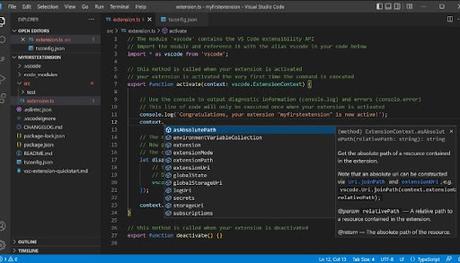
Have you heard of Visual Studio Code, also known as VS Code? It’s an IDE that’s totally free and open source, created by Microsoft. And get this – it’s light on resources, super speedy to use, and lets you customize the heck out of it! Plus, it supports tons of programming languages like JavaScript, TypeScript, Python, and C# (just to name a few).
With features like IntelliSense code completion and debugging tools built right in, along with Git commands you can access quickly, this thing is stacked! If that wasn’t enough for you, there are loads of extensions available so you can add any functionality your coding heart desires. The interface is simple to navigate, too, which makes it perfect for developers at all levels.
2. Atom
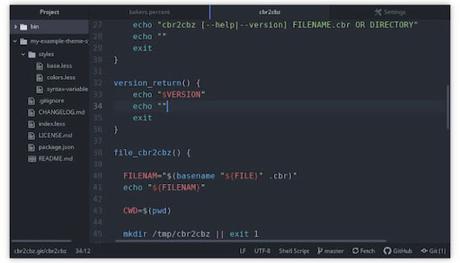
Atom is an IDE that’s been created by the good folks at GitHub, and it is all about being approachable, even if you’re brand new to coding. But don’t be fooled just because it has a friendly vibe; this thing packs a punch when it comes to customizability.
Atom lets you code in multiple languages and offers up an impressive package repository so you can really pick and choose which features or functionalities make sense for your work process. What’s great, too, is that there are loads of options out there, which makes customization endless!
Some key features worth mentioning here are cross-platform editing (meaning no matter what OS you use, Atom will work), smart autocompletion that’ll save you hours of time when working on those longer scripts, not to mention its ability to tackle multiple panes easily. Lastly, the best part: Git control! This super useful feature within Atom simplifies Git command execution making version control easy!
3. Eclipse
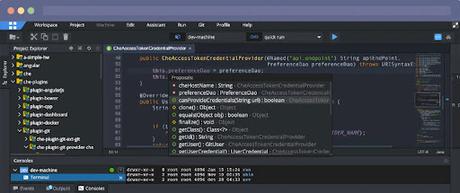
This IDE is a total game-changer, and it’s open-source, which means there are loads of plugins available that can work seamlessly with it. It’s been an industry standard for years. This thing has serious longevity!
Eclipse lets you code in multiple languages, from Java (which is undoubtedly its most popular use) to C, C++, PHP, and more! Plus, its advanced features, like code recommendations, refactoring, and quick fixes, set this IDE apart from other traditional IDEs.
The debugging tools within Eclipse are also seriously impressive. You’ll be able to hunt down those sneaky bugs without having to jump through too many hoops. Let’s face it; we’ve all been there! Some people might feel like Eclipse’s package size/weight can seem overwhelming at first. But give it a chance because the benefits far outweigh any intimidating aspects here.
4. NetBeans
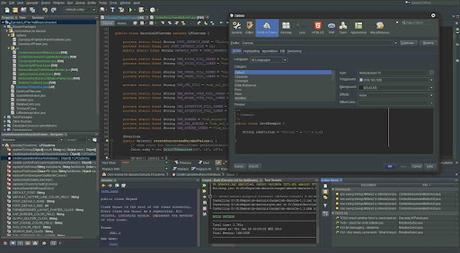
This a fantastic open-source IDE option out there that caters to multiple languages like Java, PHP, JavaScript, and HTML5. What makes it stand apart from other IDEs is its readiness right “out of the box,” which is something many people have come to appreciate.
With features like a smart code editor, rapid user interface development capabilities, and, let’s not forget, awesome debugging tools – NetBeans takes the cake! On top of all this greatness, the design for this thing is incredibly user-friendly, so whether you’re just starting with coding or are a seasoned developer working on large-scale projects, NetBeans won’t disappoint!
5. Sublime Text
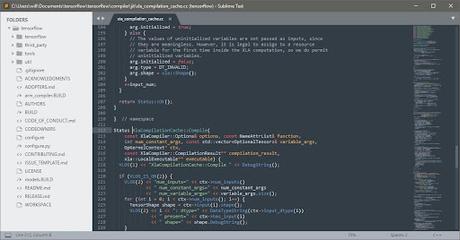
Technically speaking, Sublime Text is “freemium,” meaning there’s a paid version with more features available. Honestly, the free version is so packed with great stuff that it deserves to be on this list!
If you’re looking for a text editor that can handle code as well as markup and prose, then look no further than Sublime Text. It supports multiple languages, including favorite markup languages like HTML and XML, which means versatility is key here.
Aside from its multifunctional capabilities, the community has built some amazing plugins which are easily integrated into your workflow. And let’s not forget about the speed factor here -workflows often require quickness without sacrificing quality work; Sublime delivers in spades.
One of the good things about using Sublime Text is how visually appealing its interface looks and works. Features like ‘Goto Anything’ make scanning files or jumping between lines faster, making navigating big projects much easier. Another fantastic feature is ‘Multiple Selections’ because of the ease of simultaneous editing.
The cherry on top? This thing can be customized up one side and down the other, so whether you prefer dark themes or whitespace, they’ve got you covered!
6. Brackets
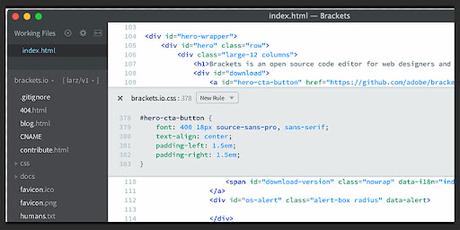
This text editor has been created by the folks over at Adobe, and it really delivers! What sets this apart from anything else out there is its user-friendly simplicity. It’s specifically designed to cater to web designers and front-end developers, so you know it’ll be a useful tool to have in your arsenal.
Brackets lets you work on HTML, CSS, JavaScript – AKA all those key tools that make up most of our web development projects. One of the amazing features is Brackets’ live preview because seeing changes happen in real time can totally take your workflow to the next level.
And if that wasn’t enough, it also offers preprocessor support (more time-saving goodness) and a quick-edit feature so you can directly edit CSS right from your HTML files themselves – efficiency win!
All-in-all, Brackets manages to pack a big punch within lightweight constraints, which really puts other text editors out there to shame!
7. PyCharm Community Edition
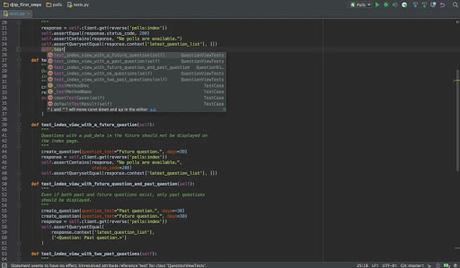
PyCharm Community Edition is the free version of JetBrains’ PyCharm IDE, which is a great option for those looking to develop in Python without breaking the bank. And get this – it comes equipped with many features that are tantalizingly similar to what their paid software offers.
Some key things worth mentioning here include intelligent Python assistance, as we all need a helping hand sometimes, right? Their web development frameworks and scientific tools make this an excellent choice when working on applications or data-driven projects.
Also, their debugger and test runner should be enough to convince anyone who might have been hesitant to give them a try. Sure, there may not be as many features available as there are within the professional version, but honestly, Pycharm Community Edition still packs quite an impressive punch and can definitely hold its own out there for developers of any skill level!
8. IntelliJ IDEA Community Edition
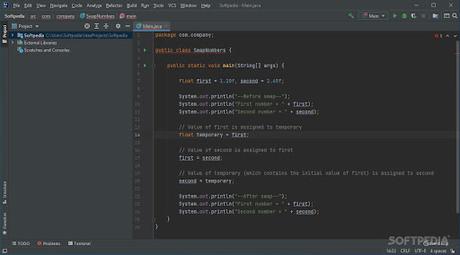
Have you checked out IntelliJ IDEA Community Edition yet? It’s another free offering from the immensely talented people over at JetBrains, this time with a focus on Java. One of the best things about using IntelliJ IDEA is how intelligent it is, which can be an absolute lifesaver in terms of speeding up productivity when working on coding projects.
With advanced code completion tools, superior code navigation features, and refactoring that’ll knock your socks off, there’s no doubt that this thing is stacked! There may be some features only available within the ultimate edition, but the community edition still has plenty to offer for any level of developer interested in working with Java.
It’s a win-win situation; utilizing software that streamlines your workflow while costing zero. Give IntelliJ IDEA Community Edition a shot, and you won’t regret it.
9. Code::Blocks
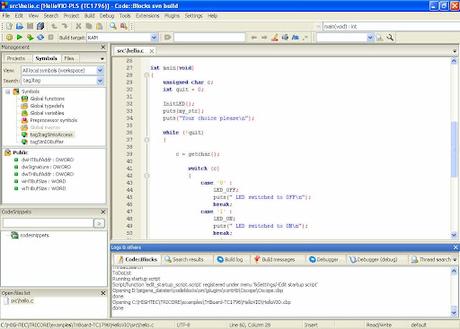
There’s a free and open-source IDE that’s been making waves among developers who work with C, C++, and Fortran – it’s called Code::Blocks. What makes this IDE stand out is how it supports multiple compilers like GCC, Clang, and Visual C++, so you know there’ll be no limitations when working on projects!
Features, such as code completion, class browsing for easy navigation while coding up your project, and debugging interface features, make debugging pesky glitches much more straightforward.
Code::Blocks is all about speed, too – its custom-built system means compiling code takes less time without compromising accuracy, which can save tons of valuable minutes in the long run! The icing on the cake? The interface itself is user-friendly from the get-go, which can really make all the difference when setting up workflows or learning something new.
The plugins are available too. This means customization options are endless for those who prefer complete adaptability within their workspace. All-in-all, Code::Blocks definitely holds its own in terms of being an excellent choice for those ready to tackle any projects revolving around languages based on C.
10. Jupyter Notebooks
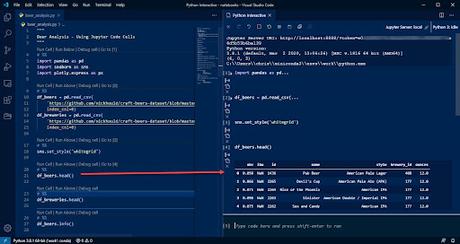
Last but certainly not least, Jupyter Notebooks! This IDE is free and open-source, so anyone can use it. Data scientists and those doing machine learning tasks absolutely love this IDE.
Jupyter Notebooks has a ton of versatility, too. It supports over 40 programming languages, including big hitters in the data science realm like Python, R, Julia, and Scala, which means you’re limited only by your imagination.
But what sets Jupyter apart is its ability to include both code input and output results all within the same document – undeniably clutch for workflow efficiency.
And if that wasn’t enough to lure you in, get excited because their data visualization capabilities are astounding! You’ll be able to share visually stunning representations of complex concepts making collaborating with others on projects or presentations super easy!
If you’re researching or working on something requiring large-scale analysis or medium-to-complex datasets, then giving Jupyter Notebook a try will definitely be worth your while.
Final Thoughts
One of the coolest things about open-source software is that it really levels the playing field for developers. These tools give you access to some pretty amazing stuff that you might not be able to get your hands on otherwise, without having to cough up any cash! With all these amazing open-source integrated development environments (IDEs) out there, you can totally boost your productivity and crank out top-notch code with zero financial investment.
Whether you’re a seasoned pro or just starting out in the coding game, there is definitely an IDE that will suit your specific needs and preferences. It’s important to keep in mind what programming languages you use most often, how big your projects tend to be, and which features are really important to you when figuring out which one works best for your style.
So go ahead and check out all these options available – try them on for size! You’ll eventually find the perfect match for supercharging your coding skills.
The post 10 Best Open-Source IDEs for Developers on a Budget first appeared on vTecki.
